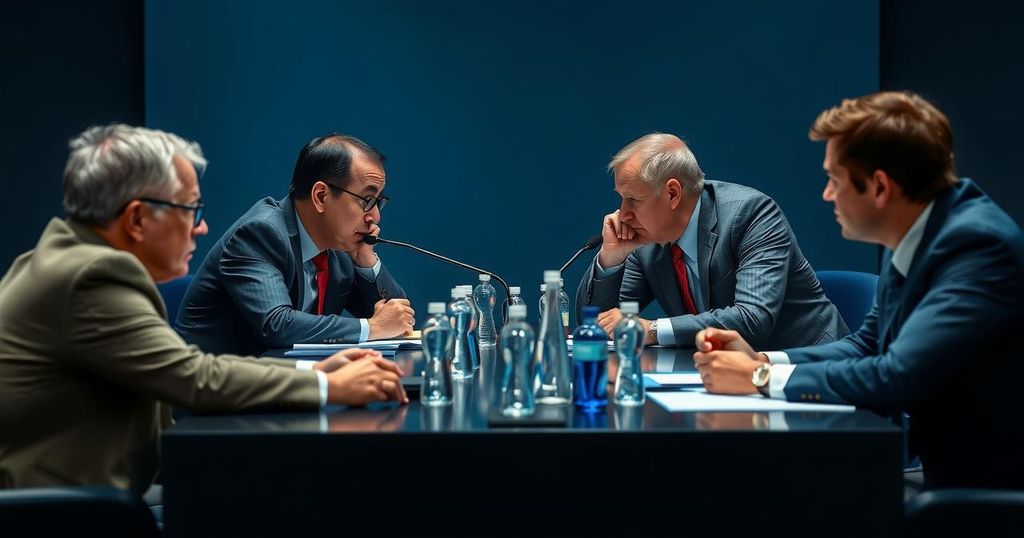Nations Express Concerns Over Obstruction in Global Plastic Treaty Negotiations

Countries at the UN talks in Busan warned that some nations, particularly oil producers, are obstructing efforts to finalize a treaty on plastic pollution. Key disagreements persist regarding production targets and the phase-out of harmful chemicals. A consensus remains crucial, as the future treaty aims to substantially curb plastic waste, with projections indicating a tripling of plastic production by 2060 if no actions are taken.
During the ongoing UN Intergovernmental Negotiating Committee on Plastic Pollution meeting in Busan, South Korea, representatives from numerous nations expressed concern over the obstructionist behavior of a few oil-producing countries that are hindering the progress toward a global treaty aimed at reducing plastic pollution. Delegates noted that despite a general acknowledgment of the issues surrounding plastic waste, substantive disagreements exist regarding critical elements, such as setting production reduction targets and phasing out hazardous chemicals. Rwandan delegate Juliet Kabera articulated disappointment over the resistance shown by these nations, asserting that Rwanda will not accept a treaty lacking in ambition. As negotiations approach their deadline, the risk of a compromised agreement looms, prompting calls for unity and decisive action against plastic pollution, which is projected to escalate significantly by 2060 without intervention.
The ongoing negotiations in Busan are pivotal in addressing the escalating global crisis of plastic pollution. Recent trends indicate that plastic production could triple by the year 2060, with over 90 percent of plastic waste currently unrecycled. The UN has been striving to create a comprehensive treaty that not only mitigates plastic waste but also sets clear targets for reducing production and limiting the use of harmful chemicals. However, ideological rifts, particularly between oil-producing states and other nations, have complicated these negotiations. The outcome of this meeting could have far-reaching implications for environmental policy and international cooperation on sustainable development.
The negotiations in Busan reflect a critical juncture in the global effort to combat plastic pollution. Despite overwhelming support from many nations in favor of setting ambitious targets, notable opposition from a minority of oil-producing countries poses significant challenges. As the deadline for agreement approaches, the need for consensus becomes increasingly urgent, underscoring the importance of collective action in addressing this pressing environmental issue.
Original Source: jordantimes.com








